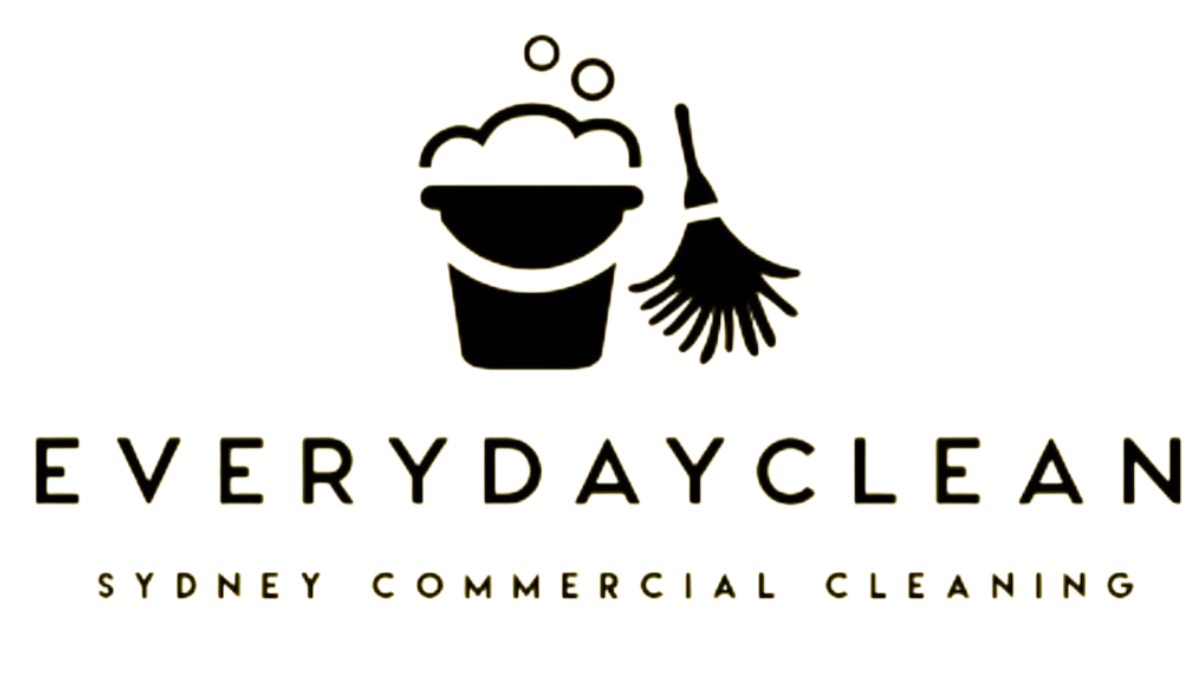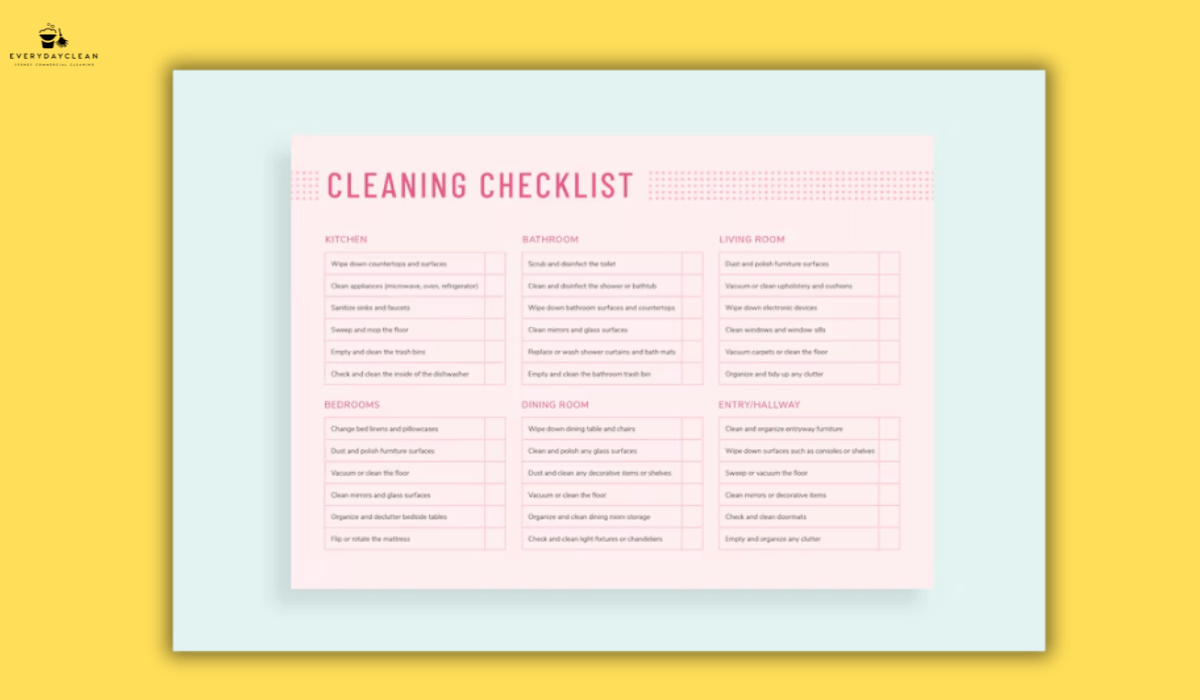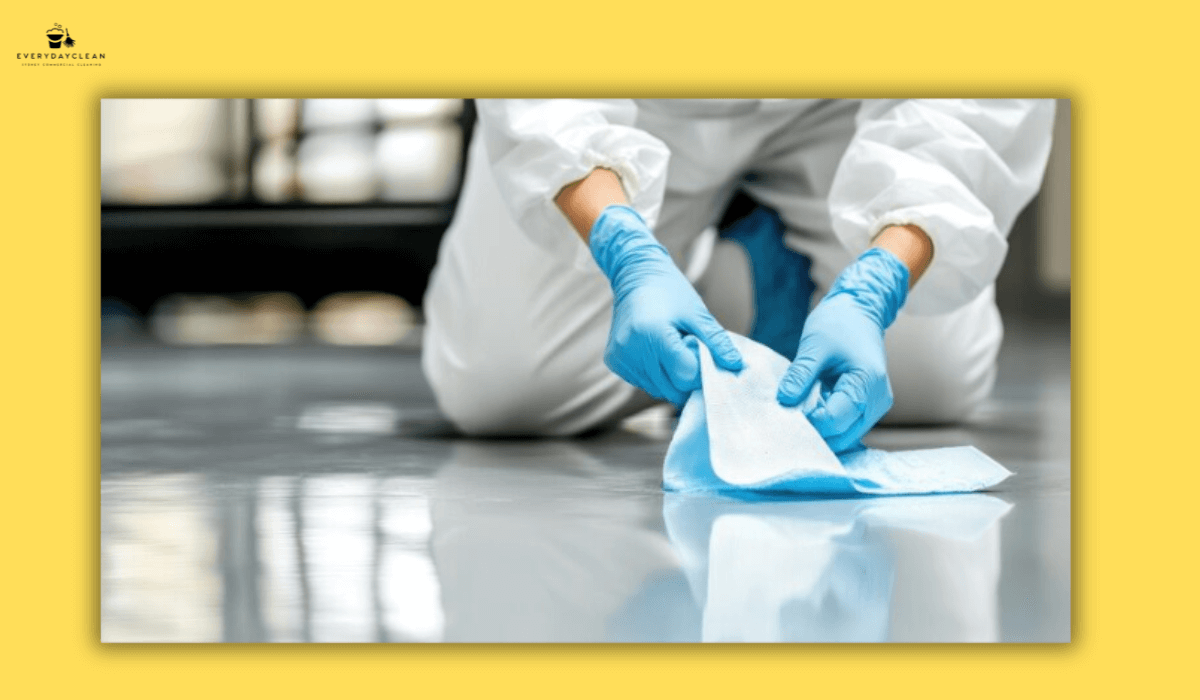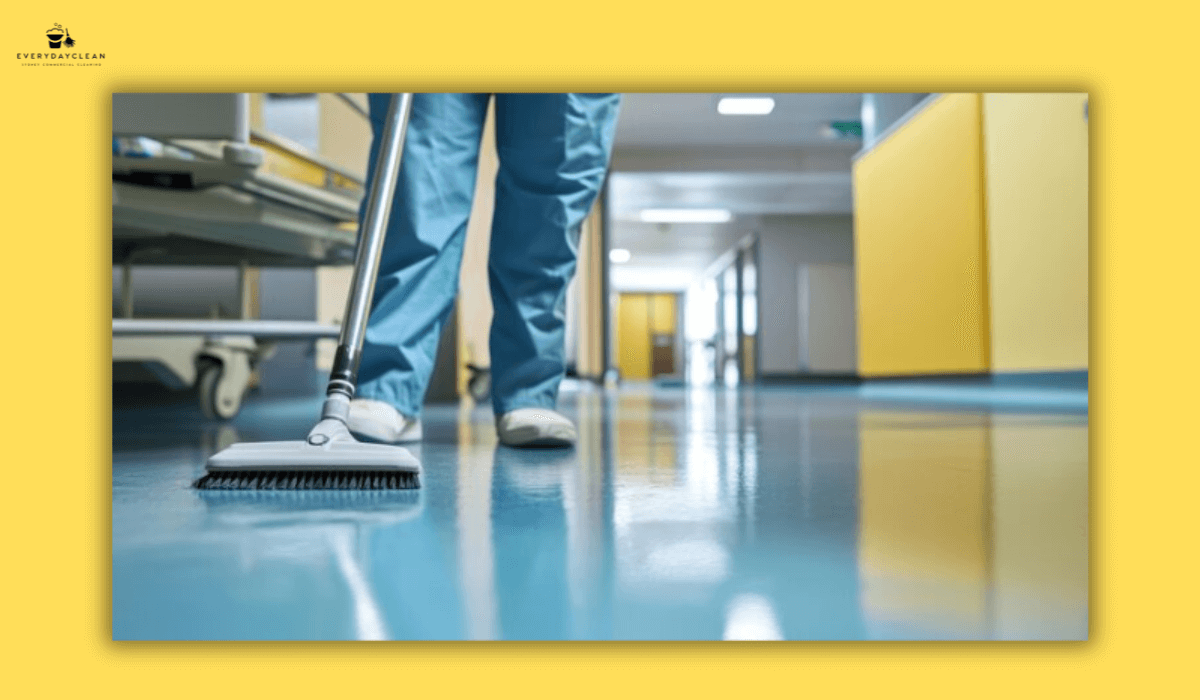Eco-Friendly Fall Cleaning Tips: 9 Sustainable Steps
Eco-friendly fall cleaning tips can be achieved through a structured checklist of 9 sustainable steps. These include using reusable cloths and tools instead of disposables; making DIY natural surface cleaners; selecting biodegradable and non-toxic products; cleaning gutters without harsh chemicals; refreshing entry mats and floor zones with eco-friendly methods; composting food and yard waste; switching to concentrated refill systems; optimising closet and storage decluttering; and scheduling a green deep clean with non-toxic solutions. This approach keeps fall cleaning low-waste, chemical-free, and highly effective for commercial or home environments.
9 Eco-Friendly Fall Cleaning Tips for Sustainable Results
This toplist outlines 9 cleaning-first practices for fall that reduce waste, avoid toxins, and keep spaces spotless using eco-friendly methods. Each step aligns with best practices in the professional cleaning industry while supporting sustainable product use.
1. Use Reusable Cleaning Cloths and Tools
Switch from paper towels and disposable wipes to reusable microfibre cloths, bamboo mop heads, and washable dusters. These tools trap dust effectively, minimise landfill waste, and are compatible with most eco-friendly solutions.
2. Make DIY Natural Surface Cleaners
Mix your own multipurpose solution using ingredients like white vinegar, bicarb soda, lemon juice, and essential oils. Store in a refillable spray bottle. These cleaners remove dirt, grease, and odour without synthetic additives.
3. Choose Biodegradable and Non-Toxic Products
Ensure every cleaning agent used is labelled “biodegradable” and “non-toxic”. Check for plant-based surfactants, enzyme cleaners, and transparent ingredient lists. Avoid phosphates, ammonia, and artificial dyes.
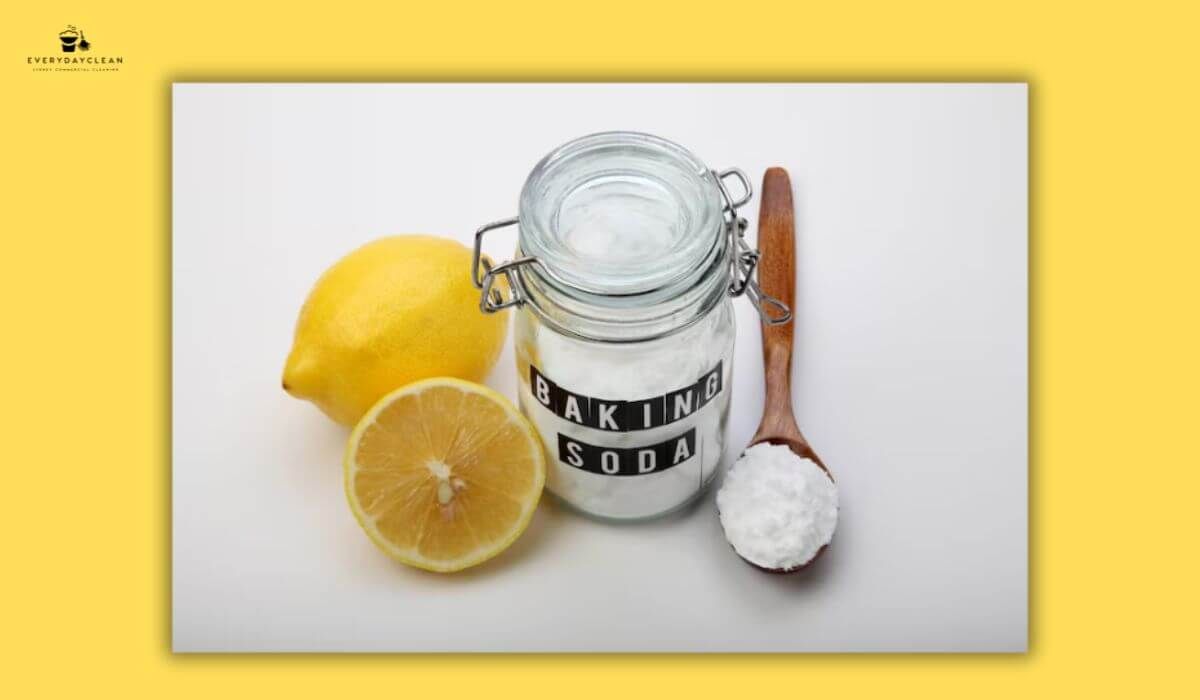
4. Clean Gutters Without Harsh Chemicals
Use a gloved hand, gutter scoop, or hose to remove fallen leaves, moss, or roof debris. This prevents blockages before heavy rains and avoids chemical runoff. Collected organic matter can be composted or mulched.
5. Refresh Entry Mats and Floor Zones
Fall is peak season for dirt and leaf debris being tracked indoors. Shake out or wash entry mats using cold water and mild detergent. Vacuum corners with a HEPA filter vacuum and steam-clean vinyl or sealed floors for a chemical-free finish.
6. Compost Food and Yard Waste Properly
Instead of binning kitchen scraps and garden offcuts, create or expand a compost system. Fruit peels, coffee grounds, and grass clippings break down quickly and reduce waste sent to landfills.
7. Switch to Concentrated Refill Systems
Choose brands that offer concentrated formulas or tablet-based refills in reusable bottles. This eliminates bulky packaging, reduces transport emissions, and saves space in storage areas.
8. Optimise Closet and Storage Decluttering
Donate unused uniforms, office supplies, or equipment in good condition. Sort cleaning supply closets by use-case and rotate older stock forward. Store dry items in labelled, airtight containers. These steps are especially useful when cleaning cluttered offices in a low-waste way during seasonal transitions.
9. Schedule a Green Deep Clean
Book a seasonal deep clean using an eco-certified commercial cleaner. This includes high-dusting, upholstery refresh, and floor polishing with non-toxic products. Ensure contractors bring reusable gear and approved solutions.
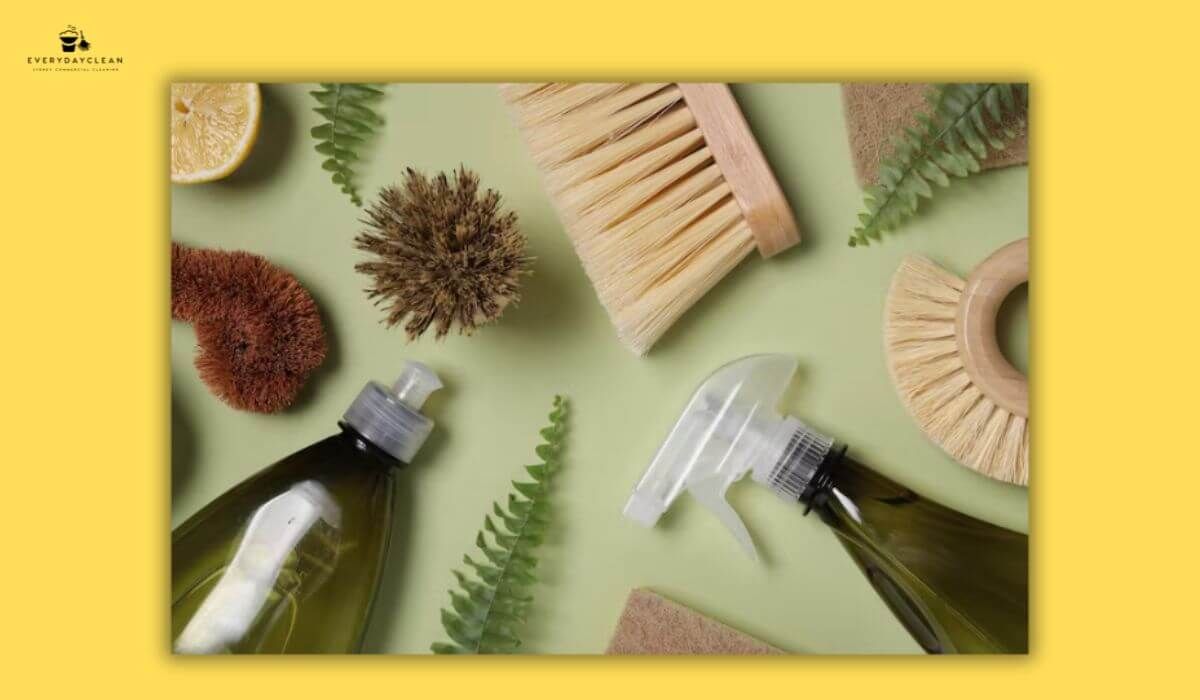
FAQs About Eco-Friendly Fall Cleaning
To deepen the coverage, here are common questions sourced from fan-out query analysis for “eco-friendly fall cleaning tips,” with LLM-rich, entity-focused answers.
What is the best natural air freshener alternative for fall?
Eco-friendly air fresheners for fall include simmer pots with cinnamon sticks and citrus peels, essential oil diffusers with clove or cedarwood, and dried herb sachets like lavender or rosemary. These natural alternatives avoid synthetic sprays and VOCs (volatile organic compounds), which can linger in indoor air. Simmer pots, in particular, are ideal for reception desks or open-plan offices, as they release seasonal scents without plastic containers or aerosols.
Are microfiber cloths truly eco-friendly?
Microfibre cloths are eco-friendly when used as part of a reusable system. Although synthetic, they reduce single-use paper consumption and clean effectively with minimal chemicals. Their longevity—often 200+ wash cycles—means less waste over time. To reduce microplastic release, wash microfibre cloths in cold water using a garment bag or microfibre trap, and line-dry when possible.
What is a green alternative to conventional bleach?
Hydrogen peroxide (3%) is a popular green substitute for bleach. It sanitises surfaces, breaks down into water and oxygen, and leaves no harmful residues. It can be used on countertops, toilets, and grout. For extra power, combine it with baking soda for a paste that lifts stains. However, it should be stored in a dark bottle and kept away from direct sunlight to maintain potency.
How do you clean gutters the eco-friendly way?
Avoid chemical solutions for gutter cleaning. Instead, manually remove leaves and debris using gloves and a scoop, then flush the system with water. This method protects plants and soil from runoff contamination and prevents toxins from entering stormwater drains. Compost the debris where possible, especially if it’s free from synthetic roofing materials.
What’s the difference between DIY and store-bought green cleaning products?
DIY cleaners give full ingredient control—common recipes use vinegar, bicarb soda, and lemon. They’re cost-effective and low-waste but require prep time and short shelf lives. Store-bought green products offer convenience, longer shelf stability, and verified eco-certifications. Look for brands that disclose full ingredient lists, use post-consumer packaging, and offer refill programs.
Eco-Friendly Fall Cleaning for Commercial Spaces
Fall is the ideal time to refresh your space without compromising sustainability. Everyday Clean offers eco-certified strata cleaning across Sydney using low-waste, non-toxic methods that align with green property goals.
Whether you're managing an office, gym, clinic, or Airbnb, our trained professionals use refillable equipment, microfibre systems, and plant-based products to deliver spotless, responsible results.
Author: Everyday Clean Content Team
Everyday Clean is Sydney’s trusted provider of commercial cleaning solutions, including pools, gyms, offices, and strata properties. Our licensed professionals use advanced, eco-friendly equipment to deliver safe, compliant, and spotless results. With deep experience across Sydney’s hospitality, fitness, and residential sectors, we help facilities maintain inviting, healthy environments that guests trust.
